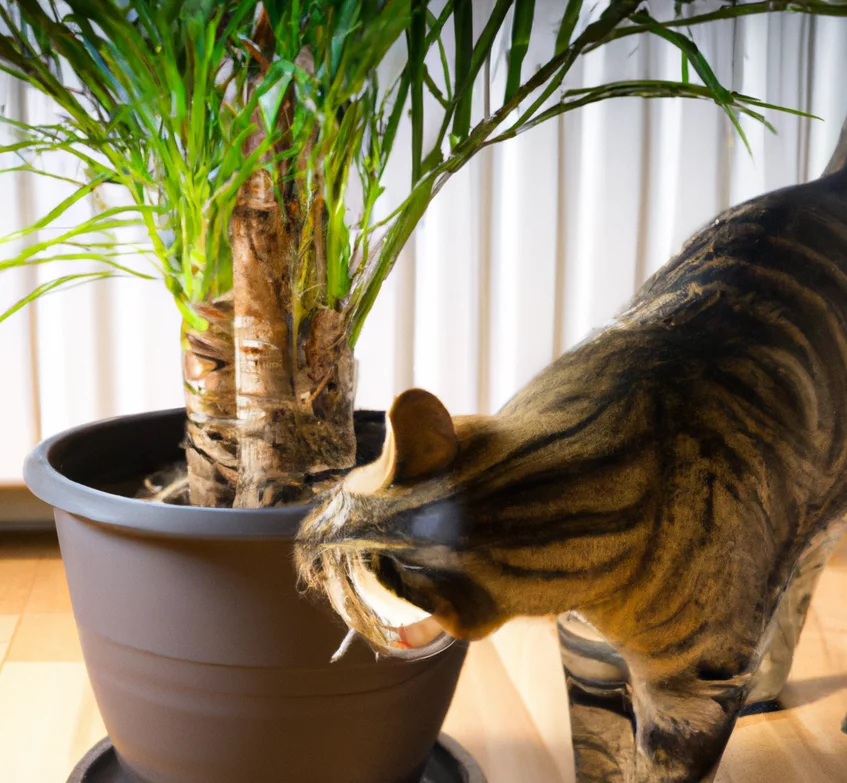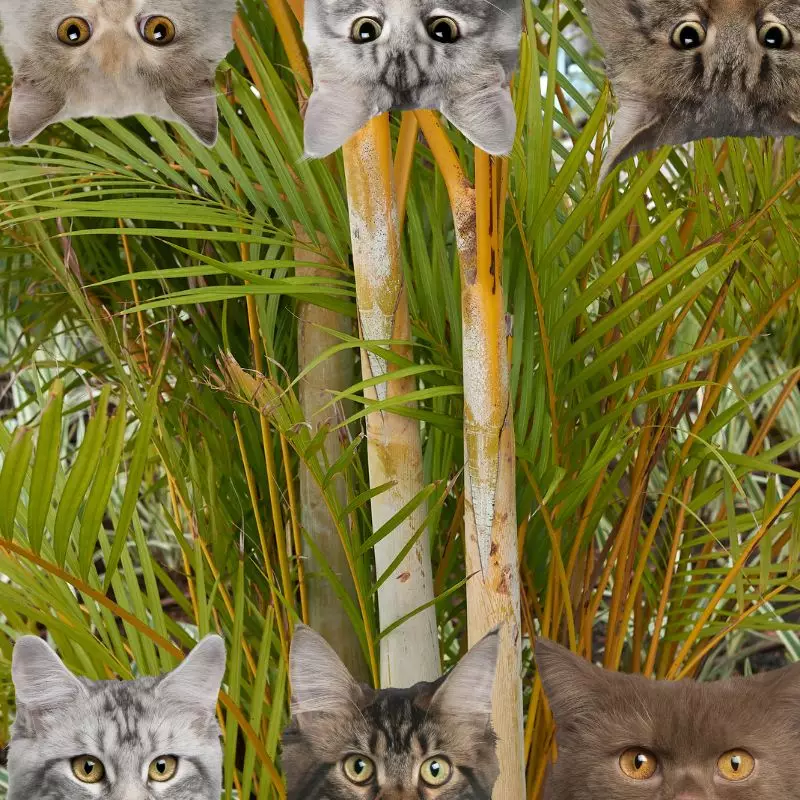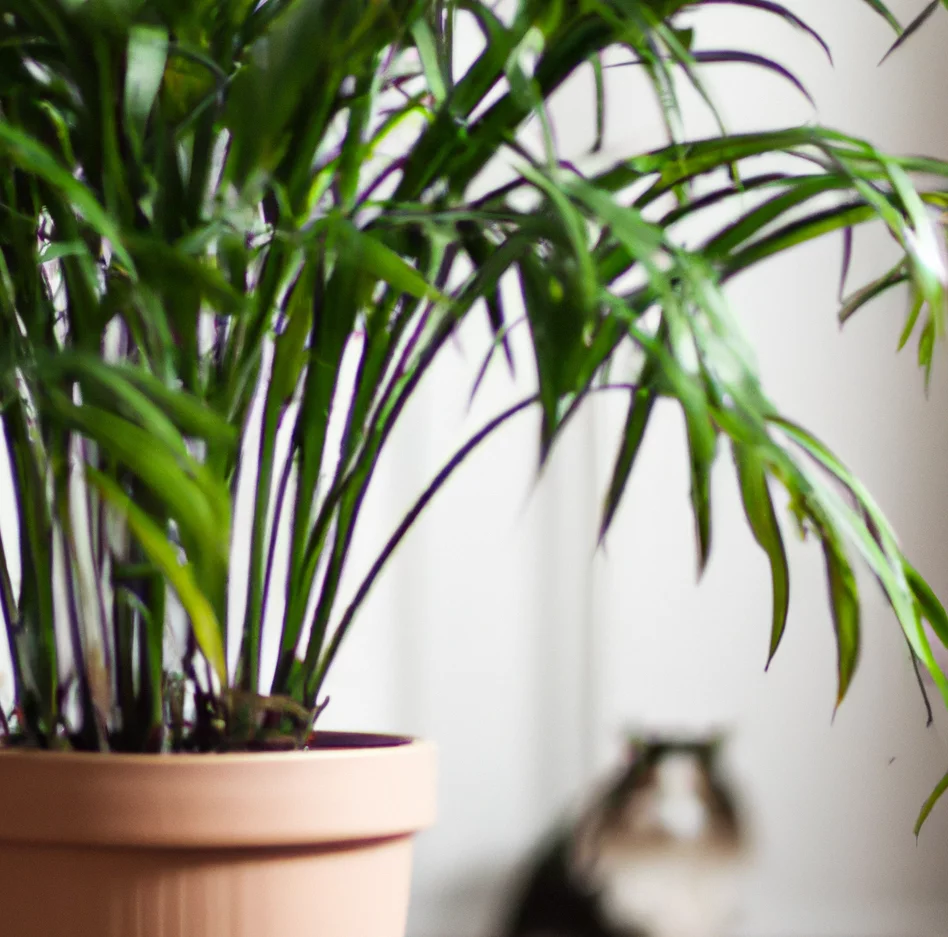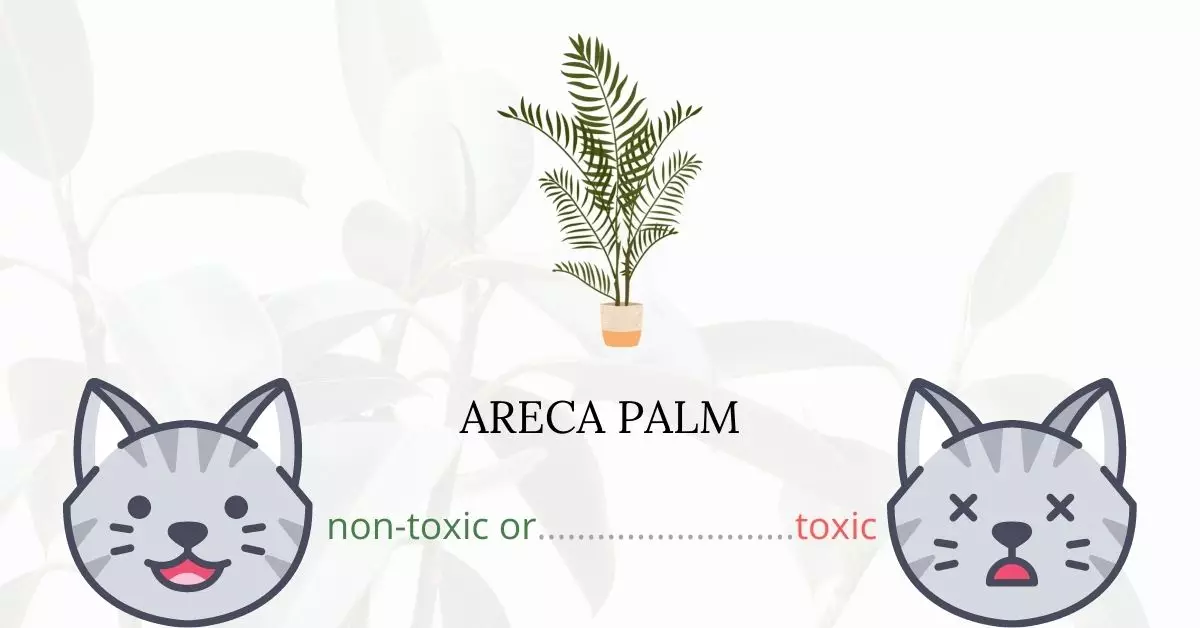Areca Palm poses no toxicity risk to cats; it is indeed a safe choice for cat owners seeking to introduce greenery into their living spaces.
This article is the result of a collaborative effort between our editorial team and a group of experienced Doctors of Veterinary Medicine (DVMs). With their invaluable insights, we aim to offer accurate and the most up-to-date information concerning the potential risks various plants, such as the Areca Palm, may pose to cats. Additionally, our findings are corroborated by extensive research conducted on high-authority websites, including ASPCA and PetMD, which also list Areca Palm as a non-toxic plant to cats. Through rigorous study and expert advice, we strive to aid pet owners in making informed decisions on creating pet-friendly environments.
Can Cats Eat Areca Palm?

Because a cat’s playful swatting and biting impulses might be triggered by palm fronds, it’s nice to know that the areca palm isn’t poisonous to cats and dogs. Cat parents should not be worried about negative side effects if their fur babies happen to bit a part of an Areca palm.
The majority of real palm cultivars are marketed commercially as houseplants and are not hazardous to domesticated animals. However, it is worth noting that the Sago Palm, which is actually a cycad rather than a palm, is harmful to cats in all sections.
What is Areca Palm?

Areca palm is also known for its other common names such as golden cane palm, areca palm, yellow palm, butterfly palm, and bamboo palm. It is a flowering plant indigenous to Madagascar. Dypsis lutescens is the scientific name for this plant.
The Areca palm may grow to be 6 to 12 meters tall. It produces panicles of yellow blooms in the summer. When offsets reach a certain age, they might be shut off as a propagation mechanism.
This Arecaceae plant is used as a houseplant in tropical and subtropical gardens, as well as in tropical and subtropical gardens. It was earned the Award of Garden Merit by the Royal Horticultural Society.
Keeping Cats Away From Areca Palm

Generally, plants are not advisable to be included in a feline’s diet. Train your cat to keep away from plants as much as possible, especially from those that are foreign to you. If you have any potted plants at home, ensure sure they are out of reach of your cat.
Plants to Avoid For Your Cats
If you are a cat owner and unsure if the plants growing in your yard are harmful to your cats, check out this list of toxic plants for cats. You can also check our list of non-toxic plants for cats.





